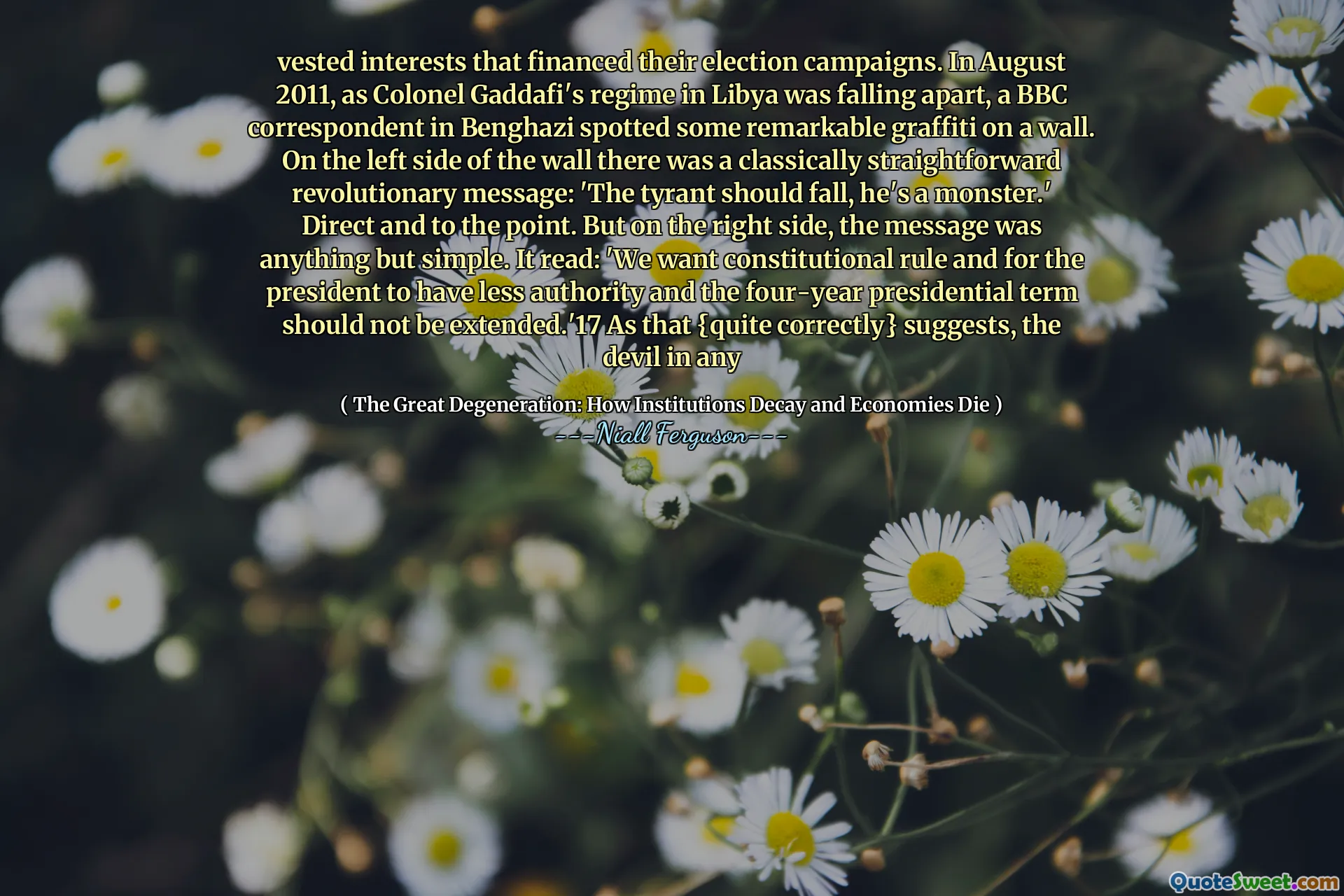
vested interests that financed their election campaigns. In August 2011, as Colonel Gaddafi's regime in Libya was falling apart, a BBC correspondent in Benghazi spotted some remarkable graffiti on a wall. On the left side of the wall there was a classically straightforward revolutionary message: 'The tyrant should fall, he's a monster.' Direct and to the point. But on the right side, the message was anything but simple. It read: 'We want constitutional rule and for the president to have less authority and the four-year presidential term should not be extended.'17 As that {quite correctly} suggests, the devil in any
In August 2011, as the Gaddafi regime in Libya was crumbling, a BBC correspondent discovered striking graffiti in Benghazi that highlighted contrasting revolutionary sentiments. On one side, a clear call for the tyrant's downfall was exhibited, echoing the emotions of a struggling populace. Conversely, the other side expressed a nuanced demand for constitutional governance, limitations on presidential power, and the need for set term durations, reflecting a desire for thoughtful political reform rather than mere regime change.
This graffiti serves as a poignant reminder that revolutions can reveal complex aspirations among the people, often intertwined with vested interests influencing political outcomes. The messages demonstrate a deep yearning for not just the end of tyranny, but a systemic transformation that emphasizes accountability and democratic principles, as discussed by Niall Ferguson in his book "The Great Degeneration," highlighting the critical role of institutions in developing stable societies.











